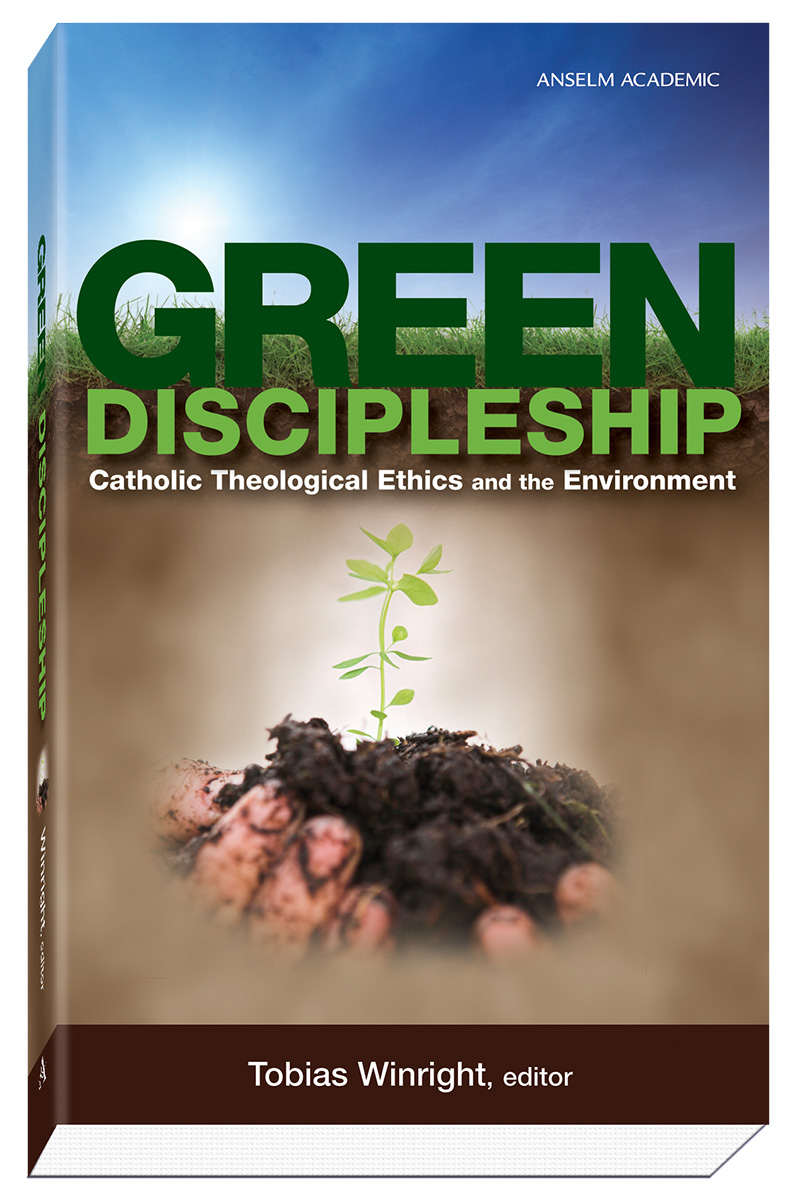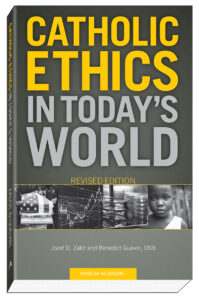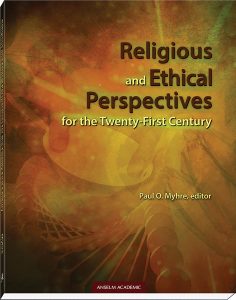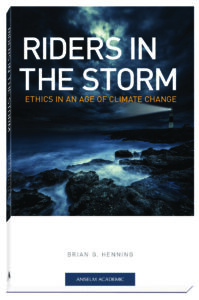Green Discipleship
Catholic Theological Ethics and the Environment
About This Book
Overview
Designed to help students view theology, ethics, and the environment through a variety of lenses.
From federal rebates for high-efficiency appliances to bottle deposits to “Meatless Mondays,” practices promoting sustainability are now incorporated into our daily lives. Due to the establishment of protection agencies and the efforts of activist groups, the wider public has become more conscious of the impact we humans make on the planet, and what we can do to preserve what we have.
Religious communities, long concerned with broad issues of social responsibility and justice, have naturally become full participants in this greening movement. In Green Discipleship: Catholic Theological Ethics and the Environment, scholars from the fields of theology and the social and hard sciences discuss this development, and consider how a proactive approach to the earth’s welfare is, essentially, a moral obligation of Christians and those of other faiths around the world.
Accessible for undergraduate or seminary students, this anchor text:
• Shows students how saving the earth is ethics in praxis
• Views theology, ethics, and the environment through a variety of lenses
• Includes tools such as end-of-chapter questions, glossary, and sidebars
Details
| Weight | 1.25 lbs |
|---|---|
| Dimensions | 5.375 × 1.5 × 8.25 in |
| Format | Softcover |
| Print ISBN | 978-1-59982-024-8 |
| Pages | 512 |
| Item # | 7027 |
|---|
Customer Reviews
“Green Discipleship will be a wonderful textbook for teachers and students. Faculty will find that the twenty-one essays cover a wide range of topics for a course on theology and the environment. Undergraduate students will find the essays written in a style that is accessible and with content that is informative. Helpful features that include review and reflection questions, an extensive glossary of terms, a bibliography, and an essay on library research make this volume a first-rate educational resource.”
Boston College
“Green Discipleship is an exciting text for courses and discussion groups that focus on theology and the environment. Twenty chapters cover such topics as Christian tradition and scripture, moral theology, and social ethics, as well as insights from Judaism, Islam, and Buddhism. The essayists are committed to both their theological disciplines and their ecological concerns. Questions for discussion, a glossary, and a select bibliography are helpful additions, especially for instructors whose expertise is not in these areas. Perhaps the book’s most useful aid is found in the appendix. Titled ‘From the Reference Librarian: A Practical Guide to Doing Research,’ it gives the student a step-by-step tutorial in how to conduct further research on topics covered in the text. Because the advice spans a range of research tools (from relevant encyclopedias to online databases of both popular and scholarly articles), this creative guide should give instructors and students confidence in assigning and doing research projects. I hope this book receives the attention it deserves.”
Santa Clara University
“If you are looking (as I was) for the perfect textbook to teach a Catholic perspective on the environment, buy this book! It is fresh, all-encompassing, accessible, practical, and well-edited. Well-versed in the data of our ecological crisis, they [contributors] offer us their instructive strategies buttressed with the resources of the scriptures and the traditions and animated by a realistic yet hopeful vision. It’s an empowering project. By the way, if you weren’t thinking of teaching such a course, buy this book anyway. You’ll be developing a syllabus on the topic before you get to Winright’s convincing conclusion.”
“Green Discipleship: Catholic Theological Ethics and the Environment is a wonderful new addition to the growing literature on environmental ethics. Designed as a textbook for undergraduates—with lists of key terms, questions for review, photographs in each chapter, and a glossary, index, and bibliography at the end—this twenty-chapter reader is accessible, engaging, and challenging. Though some chapters are better than others, as is inevitably the case with a collection of writers, throughout the book the research is well-informed and the writing is clear. As the subtitle indicates, this volume focuses on the theological and ethical resources of the Catholic tradition, but the book also includes essays on non-Christian religions as well as chapters on the application of a Catholic ethic to contemporary issues. Many thanks to editor Tobias Winright and his contributors for the gift of this excellent new book. May it find a large readership.”
Hope College, Holland, Michigan
“Look no further. . . . A powerful ensemble of articles that is on the cutting edge of religious environmental ethics . . . The place to start for scholars and ministers who on their own want to bring themselves abreast of the best of the literature. This book will be a centerpiece in the conversation on religious ethics and the environment for some time.”
“In his 1990 World Day of Peace Message, Blessed John Paul II observed, Christians, in particular, realize that their responsibility within creation and their duty towards nature and the Creator are an essential part of their faith. The thoughtful and accessible essays of Green Discipleship will appeal to all readers concerned about our fragile ecology. More importantly, the book will help Christians understand that until we recognize that environmental degradation compromises the intrinsic goodness of nature and the life and dignity of the human person—especially of the poor and vulnerable—and until we renew ancient commitments to God’s Creation, we may be doomed to ecological catastrophe. In light of the increasing ecological challenges our world faces, this book is a timely and invaluable resource for anyone who seeks to authentically understand and live the Christian life in the modern world.”
Table of Contents
Introduction—From Saving the Whales to Protecting the Planet as a “Duty Incumbent on Each and All,” Tobias Winright
Part One: The Signs of the Times
- Chapter One—The Signs of the Times: The State of the Question among Ecologists, Cathy Mabry McMullen
- Chapter Two—Restoring Creation and Redressing the Public Square: Religious Environmentalism and the Columbia River Pastoral, Michael Agliardo, SJ
- Chapter Three—If You Want to Cultivate Peace, Protect Creation: Message for the 2010 World Day of Peace, Pope Benedict XVI
Part Two: The Scriptures
- Chapter Four—Creation and the Environment in the Hebrew Scriptures: A Transvaluation of Values, Randall Smith
- Chapter Five—A New Heaven and a New Earth: Creation in the New Testament, Thomas Bushlack
Part Three: The Christian Tradition
- Chapter Six—Retrieving Saint Francis: Tradition and Innovation for Our Ecological Vocation, Keith Douglass Warner, OFM
- Chapter Seven—Saint Thomas Aquinas, the Thomistic Tradition, and the Cosmic Common Good, Daniel P. Scheid
Part Four: Fundamental Moral Theology
- Chapter Eight—Living the Natural Moral Law and Respecting the Ecological Good, Rev. Nicanor Pier Giorgio Austriaco, OP
- Chapter Nine—The Environment Within: Virtue Ethics, Nancy M. Rourke
- Chapter Ten—Toward a Eucharistic Ecology, Stephen B. Wilson
- Chapter Eleven—Neighbor to Nature, Marcus Mescher
Part Five: Social Ethics
- Chapter Twelve—Catholic Social Teaching and Creation, Christopher P. Vogt
- Chapter Thirteen—God, Creation, and the Environment: Feminist Theological Perspectives, Kari-Shane Davis Zimmerman
- Chapter Fourteen—Green Solidarity: Liberation Theology, the Ecological Crisis, and the Poor, Kathy Lilla Cox
Part Six: Insights from Other Religions
- Chapter Fifteen—Judaism and the Care for God’s Creation, Hava Tirosh-Samuelson
- Chapter Sixteen—Greater than the Creation of Mankind (Qur’an 40:57): Creation as the Divine Signature in Qur’anic and Sufi Revelation, June-Ann Greeley
- Chapter Seventeen—Why Does the Buddha Close His Eyes in My Eden? A Buddhist Ecological Challenge and Invitation to Christians, David Clairmont
Part Seven: Issues and Applications
- Chapter Eighteen—Toward a Just Way of Eating, Julie Hanlon Rubio
- Chapter Nineteen—Theology H2O: The World Water Crisis and Sacramental Imagination, Mark J. Allman
- Chapter Twenty—No Peace on Earth: War and the Environment,Matthew A. Shadle
Conclusion—“Go Forth in Peace to Love and Serve the Lord,” Tobias Winright
Appendix—From the Reference Librarian: A Practical Guide to Doing Research, Ronald Crown
Glossary of Terms
Select Bibliography
Index
Professional Reviews
Dr. Tobias Winright offers a candid interview about the development of Green Discipleship and suggestions for use in the classroom as well how it can be used in your living room. Here is an interview at Catholic Ecology about Green Discipleship: http://catholicecology.net/blog/books-tobias-winright-editor-green-discipleship






